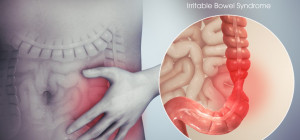 From the outside looking in, an eating disorder often looks like a self-inflicted reach for attention and a dramatic desire to change one’s physical appearance. However, those are just superficial aspects of a life-threating illness that can affect women and men of any age and background. The three most common types of eating disorders are anorexia nervosa, bulimia nervosa and binge eating disorder.
From the outside looking in, an eating disorder often looks like a self-inflicted reach for attention and a dramatic desire to change one’s physical appearance. However, those are just superficial aspects of a life-threating illness that can affect women and men of any age and background. The three most common types of eating disorders are anorexia nervosa, bulimia nervosa and binge eating disorder.
Persons suffering from anorexia tend to view themselves as overweight even though they may be thin-as a result, they drastically reduce their intake of food making themselves extremely skinny. Bulimia sufferers eat excessively then immediately purge themselves by vomiting and inducing bowel movements through laxatives. And binge eaters, eat constantly without purging, resulting in obesity.
Cause of Eating Disorders:
Eating disorders are some of the most frustrating disorders plaguing approximately eight million people in America. For some sufferers, the disorder stems from body image issues while for others it can be a dysfunctional method of self-therapy subconsciously self-inflicted as means to cope with painful emotions. Regardless of what may cause the eating disorder, it is often accompanied with depression, low self-esteem, anxiety, stress and social issues.
Dangerous Effects of Eating Disorders:
The effects of eating disorders can be very damaging physically and mentally. Continuously starving the body of food can cause organ malfunction, malnutrition, premature aging, severe dehydration, muscle weakness, lethargy, weakened immune system, acidity, brain fog and even death. The binge and purging cycles of bulimia can cause electrolyte imbalance, malnutrition, ulcers, inflamed esophagus, digestive tract issues and acidity. Binge eating can result in high cholesterol and high blood pressure as well as poor blood circulation, diabetes and heart disease.
In addition, the depressive and isolated emotions can often result in eating disorders can lead to clinical depression and suicidal thoughts and behavior.
5 Ways to Finally Overcome your Eating Disorder:
Female and male eating disorder treatment are available in many non-invasive ways. The steps below serves as a quick guide to getting you on the road to recovery.
Admit that you need help: Many people suffering from an eating disorder are in denial, they have learned to function with the disorder so they do not recognize that they may need help. If you are a friend or a family member of someone with an eating disorder you may have to intervene and force them to recognize their symptoms.
Seek therapy and support: Because an eating disorder is largely phycological, seeking therapy and support can help drastically by helping the sufferer get in touch with painful circumstances that lead to the disorder. Therapy can also help with anxiety, depression and social issues.
Nutrition counseling: Nutritional counseling will educate the sufferer on the many roles of eating the appropriate amounts of healthy foods. Seeking nutritional counsel can also help sufferers learn to value their bodies.
Meditation and exercise: Meditation and exercise are therapies for the body and the mind. Working out is the best way to achieve the ideal weight. Additionally, meditation and exercise releases healthy endorphins that promote good mood and calmness.
Find your purpose: Many people suffering from an eating disorder have poor self-value and low self-esteem. The best part of overcoming the disorder is the exciting desire to re-find oneself and finding new, healthy purposes for living long and healthy.
Being plagued with an eating disorder can certainly make life more difficult that it has to be, but understanding it and learning how to overcome it can be the most renewing and rewarding aspects of any sufferer’s life.







